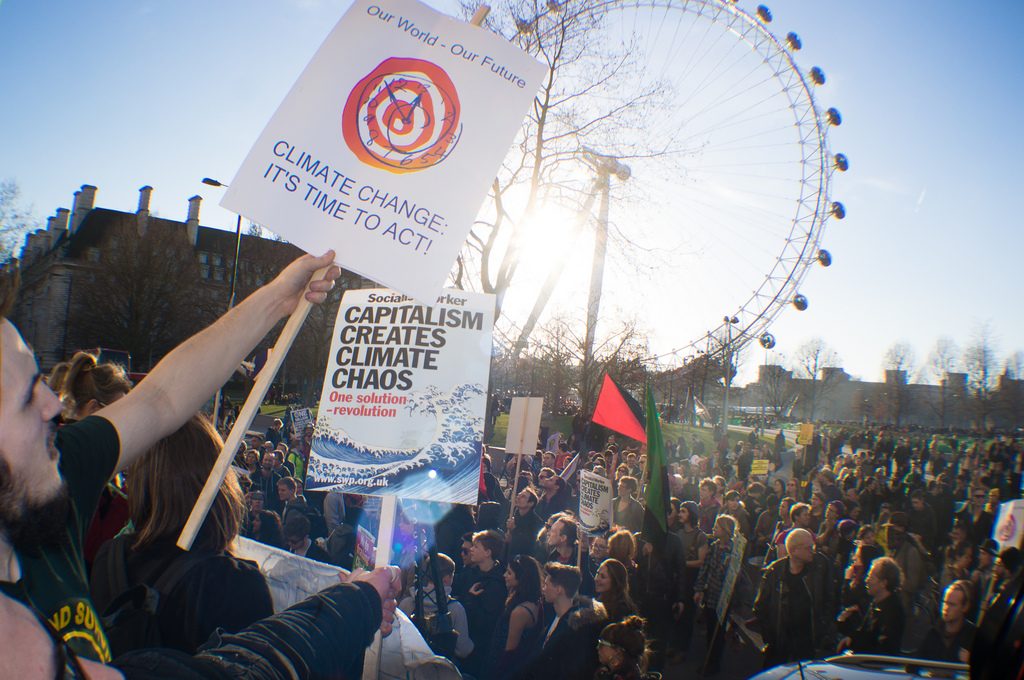A group of protesters are blocking roads in London to draw attention to climate change.
What it means: Extinction Rebellion was recently formed in response to an IPCC report about climate change. (IPCC is the part of the United Nations which looks at the political and economic impacts of climate change). The report basically said that if we don’t stop global warming in twelve years, we’re all doomed: hundreds of millions of people will be at significant risk of “droughts, floods, extreme heat and poverty”.
Extinction Rebellion wants governments around the world to “tell the truth” about how bad climate change is going to be, “reduce carbon emissions to net zero by 2025” (i.e. make sure no carbon dioxide, which is produced by burning fossil fuels and causes climate change, gets into the atmosphere, either by not producing it in the first place or by capturing it before it’s released) and “reduce consumption levels” (i.e. get us all to use less environment-damaging stuff, whether that’s electricity or non-recyclable plastic or avocados flown over from South America).
To achieve their goals Extinction Rebellion have been blocking central London roads and bridges, spray-painting buildings and “trying to get as many people as possible arrested”. The idea is to bring attention to the problem and grow their support base. But their tactics are alienating a lot of people.
London commuters are angry that the protests are making them late for work. Plenty of people who are worried about climate change don’t agree with Extinct Rebellion’s left-wing politics (which include dismantling the current financial system). Some others don’t think they are radical enough. And some point out that it’s offensive for a mostly-white movement to glorify being arrested in a world where police brutality is often racially-tinged, and black people are three times as likely to be arrested as white people.
Read our explainers on consumption and the environment.

